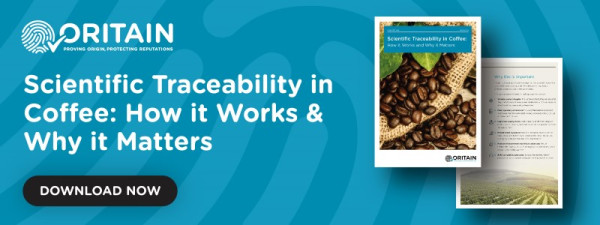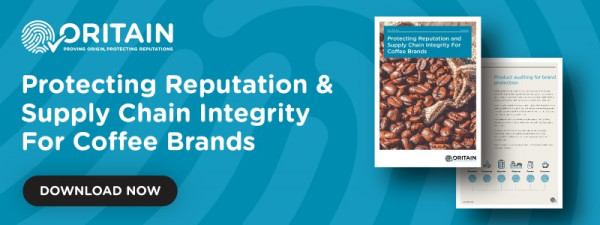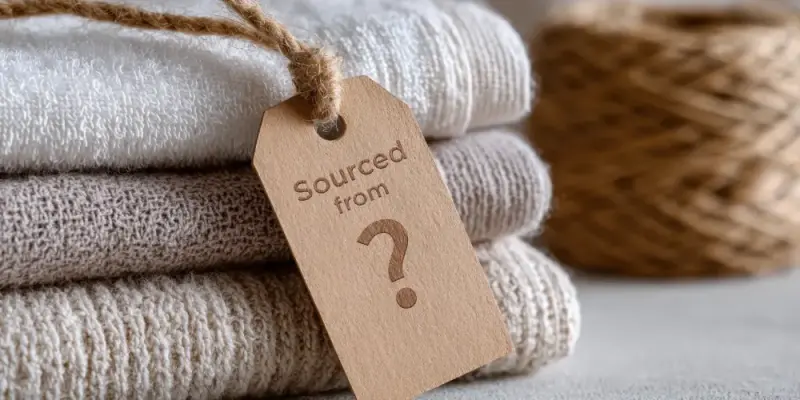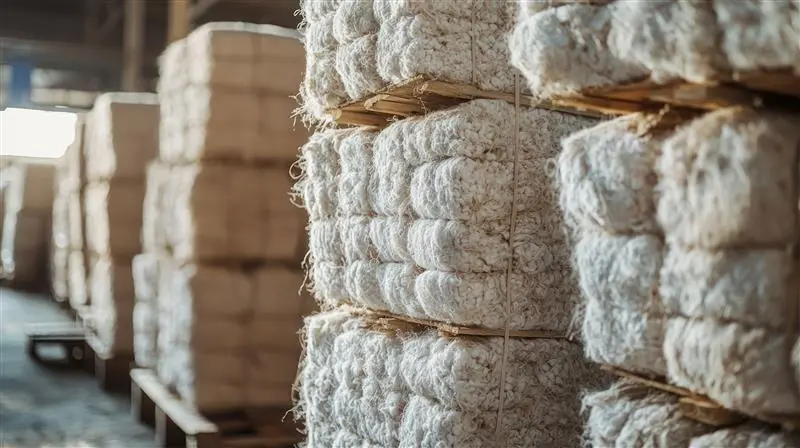Building Coffee Brand Advantage Through Scientific Traceability
By Gabriela Castro-Fontoura | 11 July 2024
minutes to read.
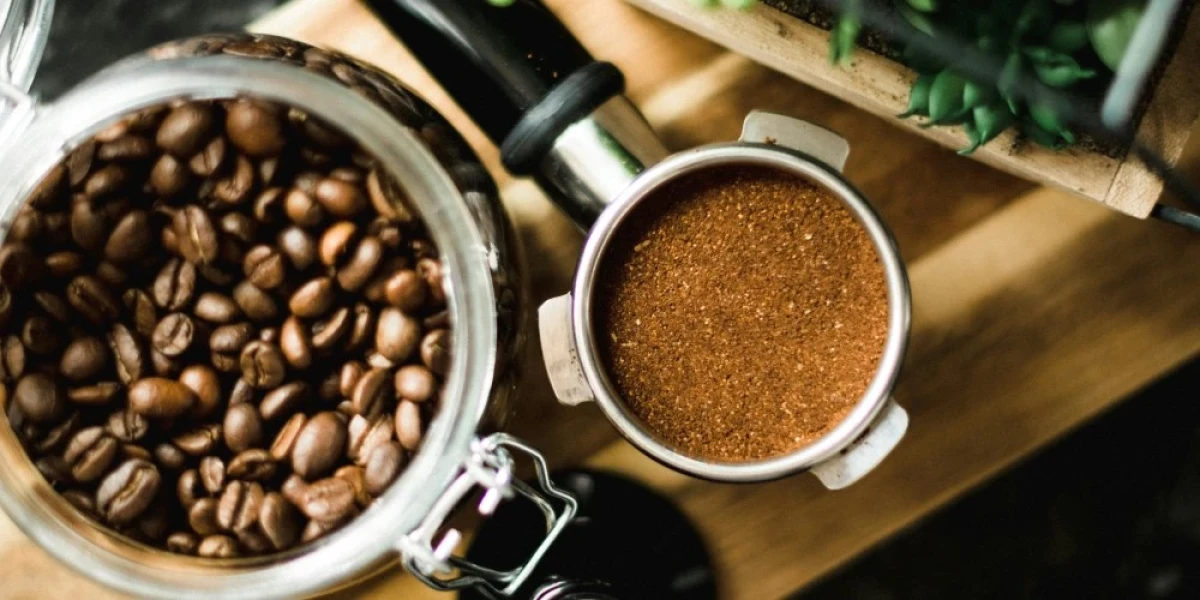
Retail shelves are full of products making origin-based claims. From packaged meats to wine and apparel to coffee, where a product originates from is an integral part of how they are marketed and how consumers perceive them.
As reading labels and researching products prior to purchase becomes more embedded as part of consumer shopping behavior, the importance of authentically communicating product claims will grow.
Product traceability supports the origin claims of brands, and a number of different approaches to traceability are available.
But with so many pack-based product claims around origin, how do brands stand out? How can they ensure the provenance of their products resonates with consumers and encourages purchase?
Scientific traceability is reliable, accurate, and trusted. Based on rigorous scientific testing, it provides a differentiator for coffee brands that can be leveraged for competitive advantage in the market.
Contents:
- What issues does traceability address?
- Why is scientific traceability better?
- Turning product claims into purchase drivers
- Oritain traceability in action
What issues does traceability address?
Product traceability has become increasingly important as coffee brands seek to meet regulatory requirements and proactively fulfill consumer demands.
The new EU Deforestation Regulation (EUDR) stipulates that manufacturers must ensure their production processes have not led to deforestation or forest degradation. Similar legislation is also being introduced in other geographies. The coffee sector is among the industries most affected by this legislation.
In addition, there is an ongoing threat of product fraud, including adulteration or substitution. The supply chain of coffee industry brands is long and dispersed, involving growers, manufacturers, distributors and retailers across the globe. This means that coffee businesses must be especially vigilant around risk management and maintaining product integrity.
Consumers are increasingly seeking transparency in product sourcing, driven by a desire to understand where the products they consume come from. This provides opportunities for brands to market origin-based product lines and promote corporate sustainability credentials, yet 1 in 3 adults in the United States distrust companies' honesty about their environmental impact.
Research from the UK suggests that consumers see little difference between coffee brands when it comes to ethical and social stances, meaning brands must do more in order to stand out and drive awareness.
Origin verification therefore supports a range of objectives for coffee brands. But which traceability methods are more effective, and which will withstand consumer skepticism?
Why is scientific traceability better?
Advances in technology and digital networks have paved the way for traceability tools such as blockchain, AI, and supply chain mapping.
But while these tools can provide a digital audit trail for compliance, they’re susceptible to fraud and heavily dependent on the accuracy and transparency of data entered into their systems.
Moreover, none of these tools physically inspect the products themselves. Their scope, and their value, is limited.
For products like coffee, where origin is intrinsic to the appeal and value, brands must be certain of where their beans originate. Anything less invites consumer distrust and regulatory scrutiny.

Studies show that many adults don’t trust ingredient or product claims unless they’re proven by science. In the packaged food products sector, consumers rely more on scientific evidence than reviews, celebrity endorsements, and brand assurances.
Scientific traceability, using proven forensic techniques, is uniquely able to trace coffee (green or roasted, whole bean or ground) back to specific points of origin – in some cases as precisely as to individual farms. Roasted and ground coffee can be traced irrespective of who roasted or ground the coffee, the particle sizes of the grinds, and the methods or machinery used for roasting and grinding.
This methodology ensures coffee businesses have the strongest scientific basis from which to promote product origin. Brands can stand behind their claims and consumers can be assured of their legitimacy.
Turning product claims into purchase drivers
For coffee brands, this presents a significant opportunity. While others in the market use alternative traceability tools solely to meet regulatory obligations, forward-looking brands can leverage scientific origin verification to drive competitive advantage as well as compliance.
Compelling stories of product authenticity and heritage can be developed to generate consumer engagement. Certifications can be leveraged by brands through on-pack visuals, point-of-purchase displays, and advertising material.
On-pack visuals are a key tool for grabbing the attention of retail shoppers. The essence of the product can be conveyed through evocative imagery and punchy messaging, while QR codes can be employed to direct consumers to more detailed online resources. When underpinned by science, it’s an effective channel to enhance brand and increase sales.
Independent scientific origin verification helps overcome consumers’ scepticism around excessive and misleading product claims. It does more than just support regulatory compliance – it provides a unique differentiator to help ambitious coffee brands stand out in a competitive marketplace.

Oritain traceability in action
Sustainability, traceability, and transparency underpin the success of coffee brands who have leveraged Oritain’s forensic science to strengthen and grow their offering in the market.
Global coffee leader Nescafé partnered with Oritain to launch the premium Brazilian Nescafé Origens do Brasil brand. By leveraging Oritain's advanced scientific technology, Nescafé provides assurance to consumers that the coffee they purchase comes from one of three very special coffee-producing regions in Brazil.
The unique environment and terroir of Cerrado Mineiro produces some of the highest quality coffee beans in Latin America. To help protect the authenticity and integrity of their product, Oritain tested hundreds of samples over three years to produce a unique Origin Fingerprint that the Federation of Coffee Growers of Cerrado Mineiro now use to enhance their reputation and promote their products across the world. Cerrado Mineiro is also the first region in Brazil with Denomination of Origin (DO) status, meaning scientific evidence to protect this huge achievement is essential.
Coffee from Hawaii (Kona being a prime example) is among the most expensive in the world, but fraudulently substituting coffee from other origins and labelling it as Hawaiian were putting this at risk. Through scientific testing of beans, Oritain works with organizations like the Hawaii Coffee Association to protect the reputation and livelihoods of local coffee businesses.
Traceability is a valuable tool to make coffee supply chains more robust and resilient. But where other methods provide only surface-level traceability, forensic science tests the products themselves, delivering accuracy and reassurance that coffee brands can truly rely upon.
To learn more about how Oritain’s scientific traceability can improve your brand and sustainability performance, contact us to speak with one of our team.
Disclaimer: The information provided in this document does not and is not intended to constitute legal advice. Instead, all information presented here is for general informational purposes only. Counsel should be consulted with respect to any particular legal situation.
